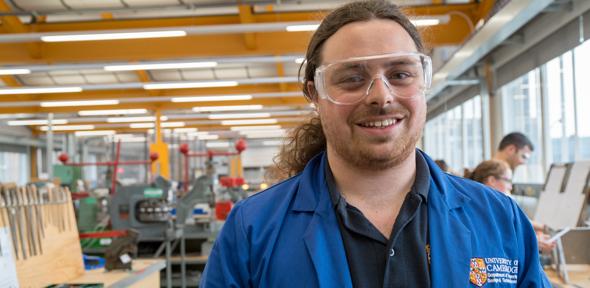
New standards and funding arrangements for apprenticeships offer opportunities to expand training provision for both new and existing staff.
The last few years have seen an expansion in the number of professions that can offer apprenticeships, from accountancy to retail, law, and human resources, as well as many scientific and technical careers. Apprenticeships can also be offered at many levels, from entry level up to management and degree/postgraduate level.
An apprenticeship is a job accompanied by training that meets an approved national standard (monitored by the Institute for Apprenticeships) and can be offered to existing employees as well as to new starters. All large employers contribute to an apprenticeship levy, and can use this money to train apprentices or provide additional training to existing staff.
The national expansion of apprenticeship standards and funding offers an opportunity to the University to enhance its offering of off-the-job training for both existing and new staff. This can help departments with succession planning, ensuring that skills gaps are plugged and important skills and knowledge are passed on.
Emma Stone, the Director of HR said: “The University is pleased to be offering new and existing staff the opportunity to complete an apprenticeship, working in partnership with our training providers to offer employees the tools to develop their careers in a wide range of disciplines. There are many benefits to the University in having apprentices, and apprenticeships are yet another initiative that supports our aim of being an employer of choice. I am looking forward to seeing how apprenticeships will increasingly offer development opportunities for people at all levels, building talent, offering career pathways and helping to ensure that Cambridge remains one of the world’s leading universities.”
Departments that currently offer apprenticeships include Estate Management, the Student Registry, the Department of Engineering and the Department of Physics, but the University is keen to see more departments taking advantage of the opportunities offered by apprenticeships, either to recruit new staff or to upskill current staff.
Three new apprenticeship standards are being launched soon: IT Applications Specialist (level 2); Business Administration (level 3) and Leadership and Management (level 5), and there are two information events to find out more on Thursday 8 March (click here to book a place).
With the recent expansion of recognised apprenticeship standards, there are many more areas where an apprenticeship could be established. Managers are encouraged to review their current workforce and future plans to identify positions that might be offered to apprentices or where training could be provided for current staff using apprenticeship levy funds. A full list of current apprenticeship standards can be found here.
To find out more about creating and managing apprenticeships at Cambridge, please visit http://www.apprenticeships.admin.cam.ac.uk/ or contact the apprenticeships team in PPD on apprenticeships@admin.cam.ac.uk
Below, you can read about departments that are already benefiting from apprentices and watch a short film of some of the University’s current apprentices.
Case studies
The Student Registry. Catherine Fage, acting Head of Student Operations, explains that creating an apprentice role helped to solve a persistent recruitment issue in one of the teams in the Student Registry. The Registry’s work varies significantly across the academic year and it takes a full year for a staff member to become familiar with all the aspects of their role, so high staff turnover is a problem. Having an apprentice in the role for two years has provided the stability and continuity that the team needed, and has also provided development opportunities for other team members, who have acquired mentoring and coaching skills through helping to train the apprentice.
Rhian, who did her apprenticeship in Business Administration at the Registry, has also found her apprenticeship a positive experience. “Starting work can be daunting, but this wasn’t the case for me. The apprenticeship has given me the confidence to think about studying for A Levels in the future, or a higher level vocational qualification. I’ve gained an enormous amount of knowledge not just in work-based skills but personal skills as well.”
The Department of Engineering started its own programme of apprenticeships some time ago when it became clear that skills were being lost as an older generation of technicians retired and no-one was coming forward to replace them. Now, thanks to the apprenticeship levy, the department is expanding its programme: using levy money to pay for the apprentices’ training has given the department more money to spend on salaries.
Alistair Ross, Manager of Design and Technical Services at the Department of Engineering, finds training apprentices fulfilling for several reasons. He did an apprenticeship himself, which he calls “the best thing I ever did” and enjoys passing on his own love of making and machinery. He likes to see the young people he trains developing both as people and as technicians over the course of their apprenticeship. Ross says: “Apprenticeships might seem to be an old-fashioned way of training but they’re actually very relevant to the modern world. Not everyone leaves school wanting to do a degree, or even knowing what their goals are.” The apprentices he has trained are now competent, confident young people with technical skills and a sense of direction in life – and the department is now assured that it will have a steady supply of the skilled technicians it needs.
In this short film you can meet some of the University’s current apprentices and hear about their experiences during their apprenticeship.
